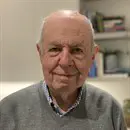
Non-participation by Saudi Arabia’s Crown Prince and Prime Minister – Mohammad Bin Salman (MBS) – and Jordan’s King Abdullah at the 31st Summit of the Arab League held in Algiers on 1 and 2 November – even via Zoom - was highly significant – signalling that the Saudi-based plan to merge Jordan, Gaza and part of the 'West Bank' into one territorial entity to be called the Hashemite Kingdom of Palestine (HKoP solution) still remains a viable solution to replace the failed 20 years-old two-state solution proposed by the 2002 Arab Peace Initiative (API) - endorsed yet again in Algiers.
Saudi Arabia, the EU, and the Arab League had previously held a closed ministerial meeting on 21 September to activate the API - given the absence of any prospect for a political resolution to end the Israeli-Palestinian conflict.
This September meeting followed publication of the HKoP solution in Al Arabiya News on 8 June – amazingly attracting no mention at the UN and scant attention in the international media and more importantly within Israel and Israel’s media.
The HKoP solution was certainly newsworthy since it offered Israel:
· Sole sovereignty in Jerusalem
· Abandonment of the right of Palestinian Arabs to return to Israel
· No separate Palestinian State between Israel and Jordan
· The shelving of the API
· Sovereignty in part of the 'West Bank' (to be netotiated) for the first time in 3000 years.
The HKoP solution also offered the Arab populations of Gaza, the 'West Bank' and Palestinian Arab refugees in other locations:
· “a legal identity—a globally respected citizenship that allows a person to operate in the modern world. Labor in this day and age is mobile and having citizenship in a country that facilitates such mobility is critical to human development.”
· “Palestinians in Arab countries like Lebanon can then become citizens of this enlarged kingdom while also getting full residency rights in Lebanon, equivalent to what an EU citizen has in the European Union outside his or her home country. This would allow the Palestinians to gain full civil rights as legal foreign residents without impacting the local political or sectarian balance in these countries. The GCC, the EU, the US, Canada, and others can also help support this solution by granting this Jordanian–Palestinian passport easier access to their labor markets.”
The Saudi proposal’s author - Ali Shihabi – is a confidant of MBS and a member of the Advisory Board appointed by MBS to report to him on the building of a new US$500 billion mega city – Neom - in northern Saudi Arabia bordering Israel.
Shihabi had lamented on the absence of a response from any Israeli politician to his plan on 14 August.
This lack of Israeli interest was ongoing when the 21 September meeting agreed:
“to work with regional and international partners to shed light on the tragic situation of the Palestinians in light of the deadlock in the peace process and the absence of any glimmer of hopeand to urge them to take practical steps to support the resumption of dialogue on the basis of the Arab Peace Initiative, United Nations resolutions and relevant peace references, in addition to reviving the diplomatic track to overcome the despair and lack of a vision toward achieving the legitimate rights of the Palestinian people and establishing their state with Jerusalem as its capital.”
MBS was not at this meeting but was subsequently appointed Saudi Arabia’s Prime Minister on 27 September.
MBS, King Abdullah, PLO Leader Mahmoud Abbas and Hamas Leader Ismail Haniyeh have not rejected the HKoP solution.
MBS and King Abdullah’s non-participation at Algiers offers the glimmer of hope that the Hashemite Kingdom of Palestine can soon become a conflict-ending reality.
David Singeris an Australian lawyer who is active in Zionist community organizations in that country. He founded the "Jordan is Palestine" Committee in 1979. The cartoon was created by the well known cartoonist Yaakov Kirschen at his request;
